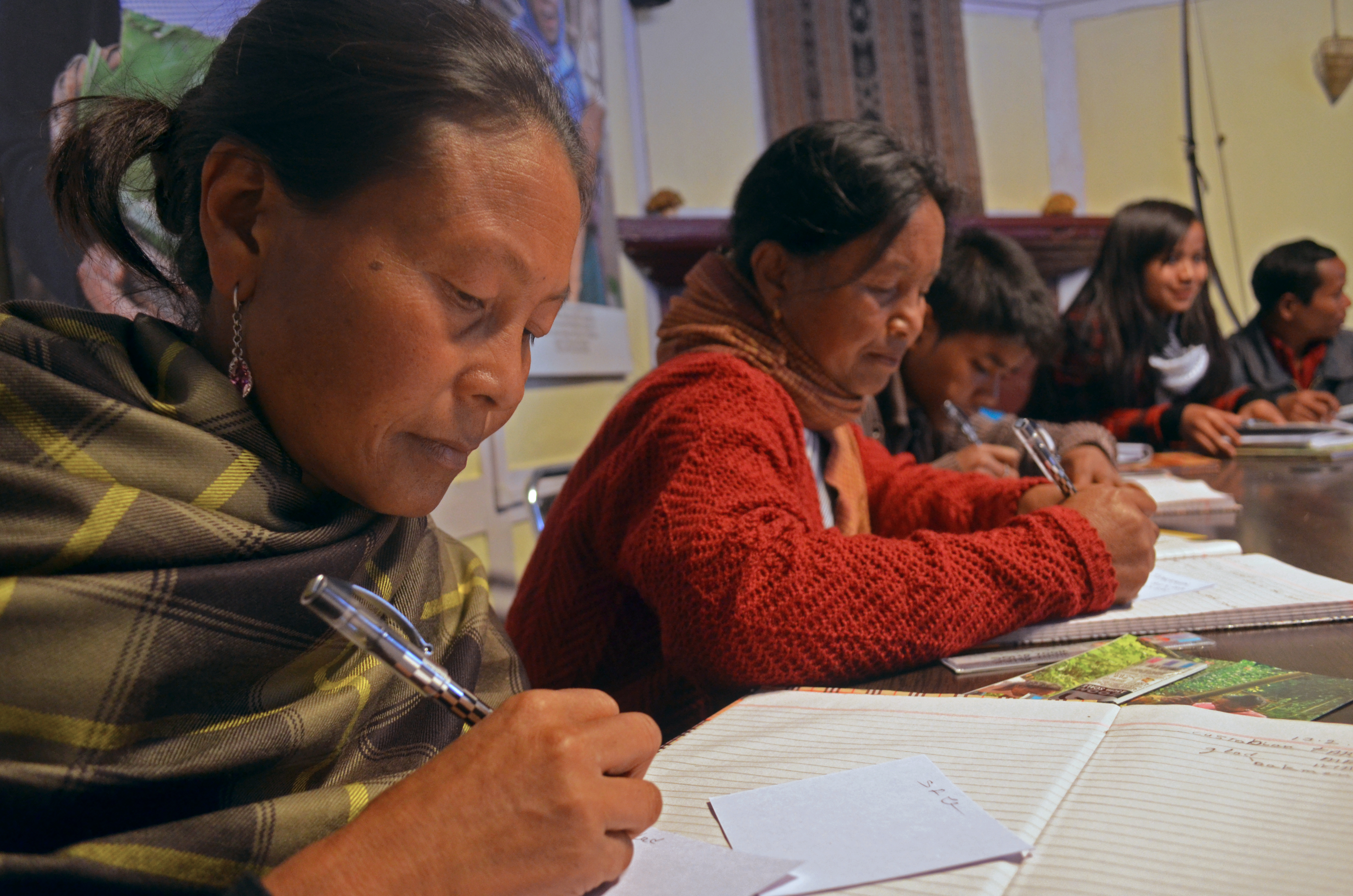NESFAS has always stressed on the significance of knowledge holders in the field of biodiversity and sustainable agriculture. In a world where mono cropping is fast becoming a trend, conservation of biodiversity relies heavily on a few farmers who maintain, adapt and share their knowledge with others. Such farmers, recognised as custodian farmers maintain portfolios of the variety of crops they produce and promote crops best adjusted to native conditions.
The role of custodian farmers, NESFAS believes, is not just limited to their quality maintenance of crops, but most importantly, to serve as knowledge banks. Their knowledge is exclusive to the conditions they work with and therefore can be considered as a highly valued form of legacy and must not go unpreserved.
On February 13, NESFAS organized a workshop for custodian farmers from various parts of Meghalaya to share experiences, challenges and issues relating to conservation of biodiversity and knowledge management.
One of the focus points of the workshop was the introduction to the PBR (People’s Biodiversity Register). This tool involves a participatory approach in documenting crop species; the insights to their requirements, production, uses, characteristics, history and changes in the current production scenario. The register is to be maintained by the farmers at the village level with the aim to bring out the motivation in the farmers in reproducing the best of their knowledge on paper to be subsequently used through time and generations. The final outcome of this documentation tool is to ensure that no traditional knowledge, especially the ones collected orally through ages, shall be forgotten.
NESFAS facilitated the gathering of eleven custodian farmers from 10 villages including Porksai, Nongriangka and Nongmawlai of West Khasi Hills, Laitsohpliah, Laitumiong and Nongtraw, of East Khasi Hills and Mulum and Mulieh of Jaintia Hills and Sasatgre of West Garo Hills.
The participants exhibited profound enthusiasm in the practicality of the PBR and expressed desire to introduce this tool into their respective villages, each possibly cradling a tremendous amount of agrobiodiversity.
The workshop also presented an opportunity for the creation of a network among the participants. Amidst the discussion of a list of shared topics, many agreed on the fact that a network is essential if they are to develop as better farmers collectively. The workshop revealed that one community may have a solution for another on a certain issue and they could, on a larger scale, share their respective knowledge banks when circumstances arise.
For example when Mr Richard Ranee from Nongtraw spoke about the problems he faced with the long term storage of seeds Mr Protasius Puweing from Porksai suggested, as a solution, the plantation of the seeds in a small plot of land for seed propagation. Suggestions were also made for the addition of an index on nature of the soil on which a crop could grow in the PBR.
Additionally, the workshop helped create a platform for upcoming seed exchange events and follow-up meetings.
The network promises to bind together custodian farmers from different parts of the state to the same goal of conserving biodiversity and indigenous knowledge.
“I have attended many training before, but I have never come across anything as important as the PBR training. I have realised its potential usefulness, as it operates so closely to the grass-roots. It will be tremendously helpful for future ages to come”. – Dharmen G Momin, Farmer, grass-root activist
Topics under the PBR include –
Name of plant, type, description, uses, availability, nutritional properties, ways of growing, means of propagation, time of sowing, time of harvest, geographical factors for growth, plant care instructions, pests, manure required, production history, related folklore.

Participants of the Custodian Farmer Work Shop: (left to right) Rahul Antao (Consultant, NESFAS), Raymond (Fascilitator), Teishuwa Sayoo (Mulieh), Simorin Marbaniang (Pyndengmulieh), Richard Rannee (Nongtraw), Senaris Mawsor (Nongriangka), Protasius Puweing (Porksai), Bonilla Mawsor (Ningmawlai), Byllaimon Swer (Laitsohpliah). Lucy Khongngaim (Laitumiong), Reuben Shabong (Translator), Dharmen Momin (Sasatgre), Nippenson Mark (Sasatgre), Perfection Suchiang (Mulum)
 Translate
Translate





